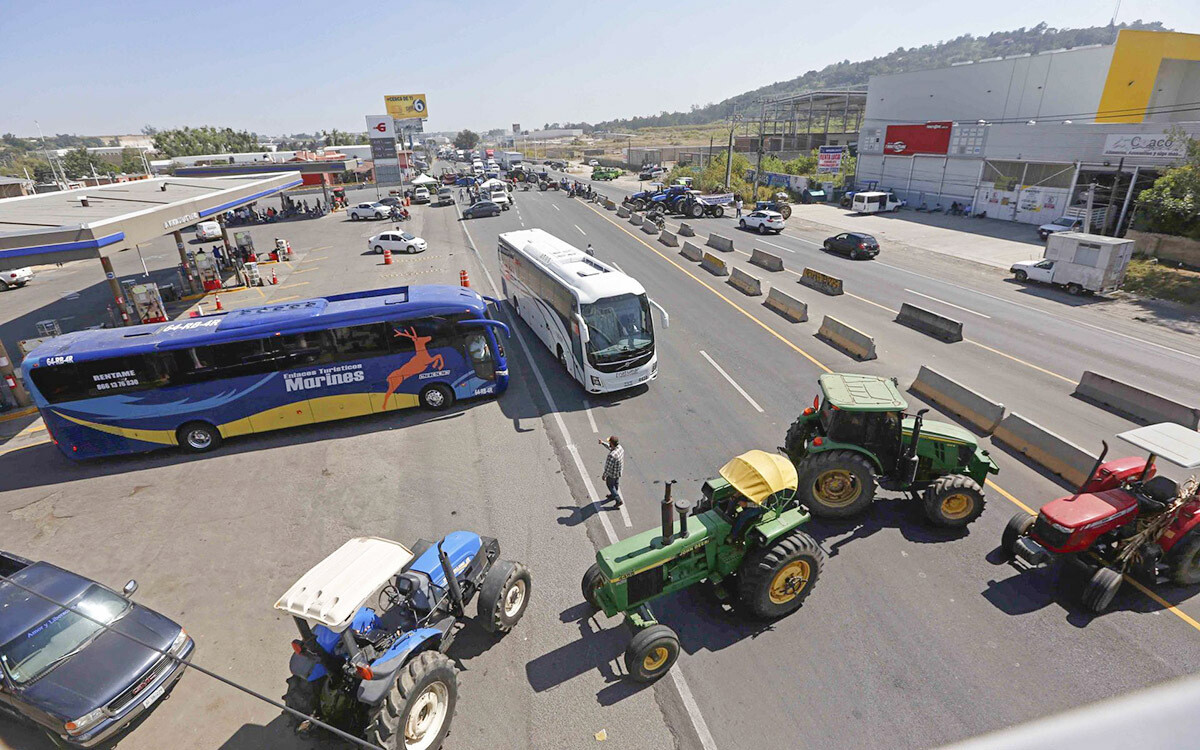
The National Chamber of the Transformation Industry (Canacintra) reported that road blockades recorded for over 72 hours in different regions of the country caused losses exceeding 2,300 million pesos, severely affecting the operation of companies, the distribution of inputs, and the supply of basic products.
In a statement, the organization recognized the agreement reached between the federal government and agricultural producers, which allowed for the beginning of the liberation of highways in some states. However, it warned that “road blockades cannot be the cost of dialogue,” while demanding responsibility and compliance to avoid new damages.
Following negotiations between producers from the Bajío and federal legislators, an agreement was reached with the Federal Government and state governments to grant a subsidy of 950 pesos per ton of corn, as well as to allow producers to negotiate with buyers at the free market price, which currently stands at around 6,000 pesos per ton.
According to Canacintra, interruptions on strategic routes of the Bajío, West, and Altiplano corridors generated delays in transport, cancellation of deliveries, extraordinary storage costs, and a temporary shortage of industrial inputs and basic foodstuffs.
These repercussions directly impacted social welfare, “affecting the final price of essential products and causing partial closures of operations in micro and small companies dependent on daily supplies.”
The Chamber expressed its support for dialogue and institutional solutions, although it emphasized that “no legitimate demand can be expressed through actions that paralyze national mobility or put the population's security and productive chains at risk.”
In this sense, it reaffirmed that “the stability of the countryside is also an indispensable condition for the stability of the industry.”
Likewise, the industrial body called for strengthening early attention mechanisms and permanent coordination tables between Government, producers, and industrial sectors, in order to anticipate conflicts and preserve the mobility of goods, inputs, and people.
Finally, the Chamber reiterated its disposition to “constructive and responsible” dialogue, and pointed out that national prosperity depends on the collaboration between the productive sector, the Government, and society.
“Mexico needs stability to produce, invest, and grow; and the industry, as the backbone of that stability, will continue to be a firm voice in defense of economic development and the well-being of all Mexican families,” it concluded.
He added that this type of measure “not only increases logistics costs, but also erodes confidence in the stability of the Mexican productive environment.” Canacintra recalled that among the sectors it represents is the agribusiness, considered strategic for its role in the transformation and value added of food, as well as in the integration of chains that directly link the field with the manufacturing and export industry.














